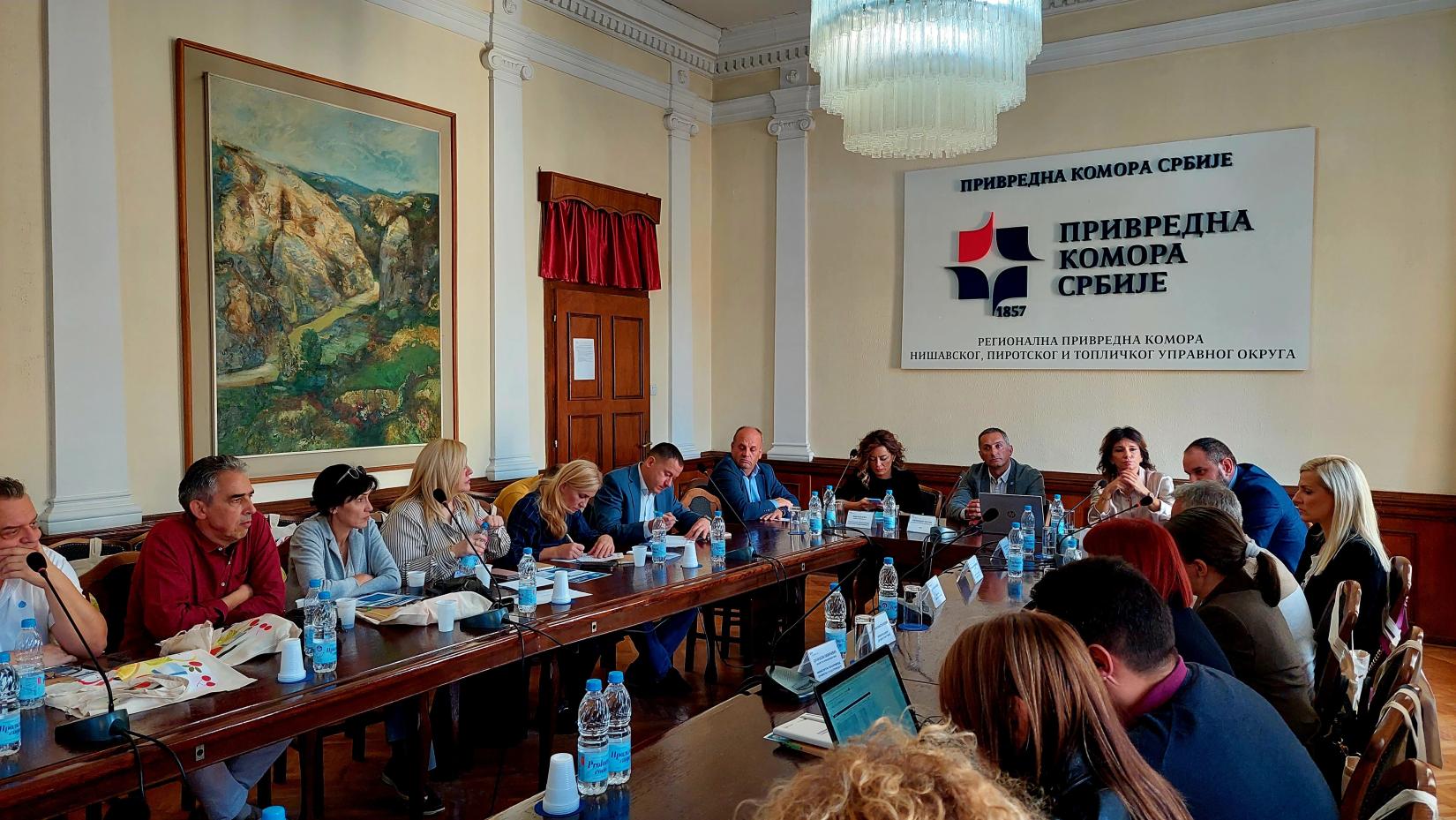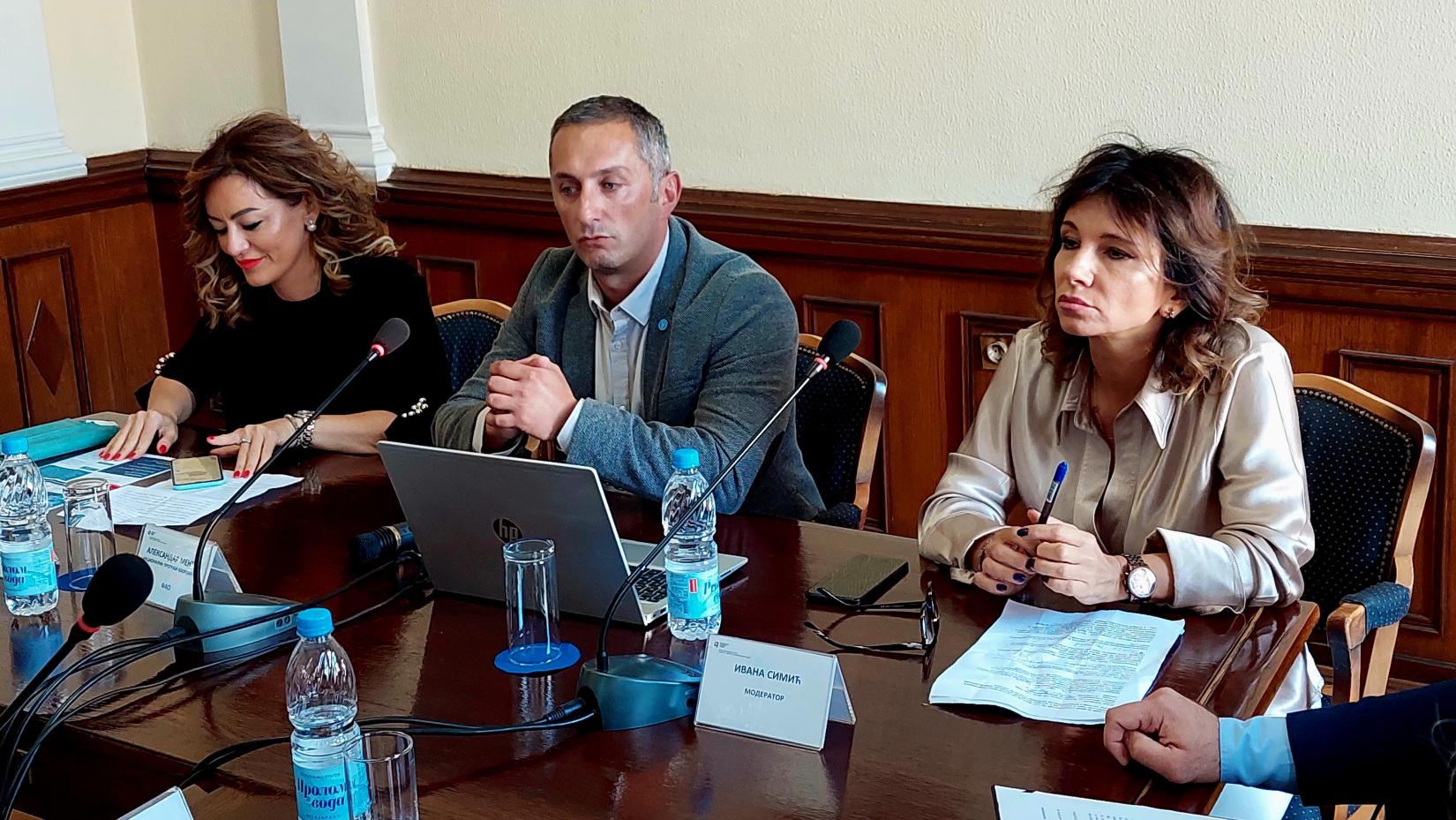World Food Day: National Dialogue in Niš Calls for Bolstering Action for Sustainable Food Systems in Serbia
13 October 2023

Niš, 13 October, 2023 - In Serbia, one-fifth of the workforce is employed in the agricultural sector, while 40% of the population lives in rural areas. Recognizing the complexity of the food system, from production to consumption, there is a need to strengthen collaboration across sectors, exchange information, and share experiences to tackle existing challenges, including food loss and waste, water, air, and land pollution, poverty, biodiversity loss, and climate change.
In pursuit of innovative solutions and outlining remaining gaps for creating sustainable food systems, the Food and Agriculture Organization of the United Nations (FAO), in collaboration with the Ministry of Agriculture, Forestry, and Water Management, the National Association Serbia Organika, and the Chamber of Commerce of Serbia, brought together representatives from small businesses, government institutions, educational organizations, policy makers, private sector, and civil society at the National Dialogue in Niš.

The event was organized as part of a series of dialogues for implementation of the National Pathways for Food System Transformation, that is mainly focused on "those parts of society with the least resources and information and the most challenging access," as defined at the UN Food Systems Summit held in July 2023 at the UN Headquarters in New York.
"We must harness the power of knowledge to improve food systems that ensure safe, accessible food for all, while preserving natural resources and combating climate change," said Vedrana Ilić, Assistant Minister at the Ministry of Agriculture, Forestry, and Water Management of Serbia.
"This year's global theme is water - essential for all living beings on Earth and for food, energy, and industry production. Without water, there is no development, no progress, no future. We must encourage society to undergo systemic changes in thinking, culture, and resource management, and each one of us must do our part to ensure that no one is left behind," she added.
Recognizing the importance of food system transformation for rural, economic, and social development, Serbia participated in the UN Food Systems Summit and renewed its commitments to reshape infrastructure for rural development, especially for irrigation and storage, accelerate innovation and digitization in the sector, promote sustainable production and consumption, and invest in innovative ways to finance small farmers.
"Today, we face challenges like climate change and pollution, but we also have knowledge and new opportunities provided by digitization, science, and innovation. We must harness our capacities, increase funding, and strengthen partnerships to make the sector more competitive and resilient. FAO will continue to work on promoting organic agriculture, nature-based solutions, biodiversity conservation, and the swift implementation of National Pathways for safer and more sustainable food systems in Serbia," said Aleksandar Mentov, National Programme Coordinator of the Food and Agriculture Organization of the United Nations (FAO).
Some of the main questions raised at the event were: Why is the preservation of water resources crucial for food systems? How can we provide more support to women entrepreneurship? In which ways are innovative food production solutions beneficial for small entrepreneurs? How can quality education enhance food safety? What is our impact on agriculture in the context of climate change, and what can be done on different levels?
In line with this year's global theme of World Food Day, under the slogan "Water is Life. Water is Food. Let No One Be Left Behind," participants highlighted the importance of preservation and responsible use of water resources, especially in agricultural production. The conclusion was that improving water management systems requires data, innovation, investment, and technologies to enable more efficient water use by farmers and the private sector - preserving this valuable resource.
The importance of supporting women entrepreneurship through promoting gender equality and closing the gender gap in women's economic participation, educating youth about food safety, and the significance of innovations in agricultural production for small producers and the development of solutions based on science and digital technologies were all emphasized. These actions aim to improve production, nutrition, and a healthier environment.
About World Food Day
World Food Day is celebrated every year, marking the anniversary of FAO and is one of the most significant international days of the UN, calling for global action to transform food.
This year's theme, "Water is Life. Water is Food. Leave No One Behind," highlights the 2.4 billion people living in areas with insufficient water access and the 600 million who depend on food systems related to water, facing pollution, ecosystem degradation, and the impacts of climate change.
The day is celebrated in over 150 countries, aiming to inspire governments, businesses, civil society organizations, and the public to work together to combat hunger and raise awareness about responsible water management for our food systems.











